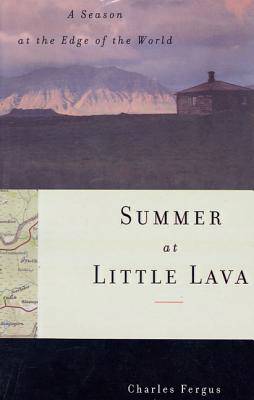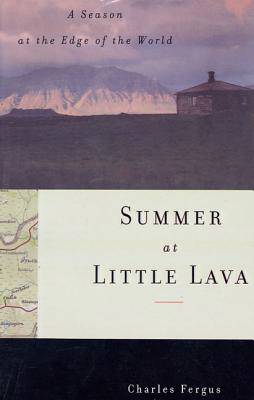
Je cadeautjes zeker op tijd in huis hebben voor de feestdagen? Kom langs in onze winkels en vind het perfecte geschenk!
- Afhalen na 1 uur in een winkel met voorraad
- Gratis thuislevering in België vanaf € 30
- Ruim aanbod met 7 miljoen producten
Je cadeautjes zeker op tijd in huis hebben voor de feestdagen? Kom langs in onze winkels en vind het perfecte geschenk!
- Afhalen na 1 uur in een winkel met voorraad
- Gratis thuislevering in België vanaf € 30
- Ruim aanbod met 7 miljoen producten
Zoeken
€ 34,95
+ 69 punten
Omschrijving
Little Lava is a farm on the west coast of Iceland. No roads lead to it; the way lies across a lagoon flooded twice a day by the tide. A lava field borders the farm. From the house, views give onto mountains, volcanoes, rugged coast, and the pure Icelandic sky. In Summer at Little Lava, Charles Fergus tells how he fixed up an abandoned house on the farm and spent a summer there with his wife and their young son-living day to day in great simplicity, without heat, electricity, running water, or other conveniences. Inspired by Henry Beston's classic book, The Outermost House-about a year Beston spent living in a cottage on Cape Cod-Fergus sought a place at the outer limits of civilization, and on the coast of Iceland he found it. As it happened, there was a sudden death in his family-the cruel, pointless murder of his mother at her home in Pennsylvania; and so, in the twilit open spaces of Iceland, Fergus confronted his grief, in the midst of the country's abundant wildlife and distinctive geology, its history and mythology. The little house on the coast became a refuge as he sought to recover himself and the meaning of his life. "Little Lava was a place where I could pass the days in peace," he tells us, "where I could take the first steps into a future that, I hoped, would not be so dimmed with grief and pain." Summer at Little Lava is a wise and vigilant book. It touches on Iceland and Icelanders, birds and nature, tragedy and personal loss; in strong, resonant prose, it evokes the strange and compelling landscape of Iceland.
Specificaties
Betrokkenen
- Auteur(s):
- Uitgeverij:
Inhoud
- Aantal bladzijden:
- 304
- Taal:
- Engels
Eigenschappen
- Productcode (EAN):
- 9780865475496
- Verschijningsdatum:
- 1/08/1999
- Uitvoering:
- Paperback
- Formaat:
- Trade paperback (VS)
- Afmetingen:
- 141 mm x 217 mm
- Gewicht:
- 435 g

Alleen bij Standaard Boekhandel
+ 69 punten op je klantenkaart van Standaard Boekhandel
Beoordelingen
We publiceren alleen reviews die voldoen aan de voorwaarden voor reviews. Bekijk onze voorwaarden voor reviews.









